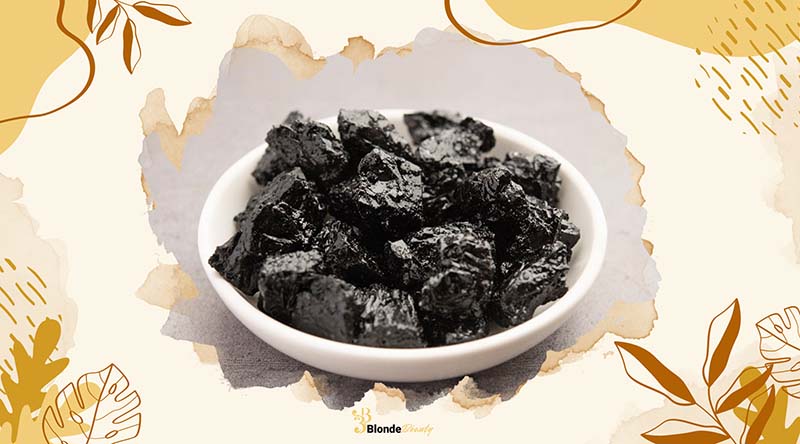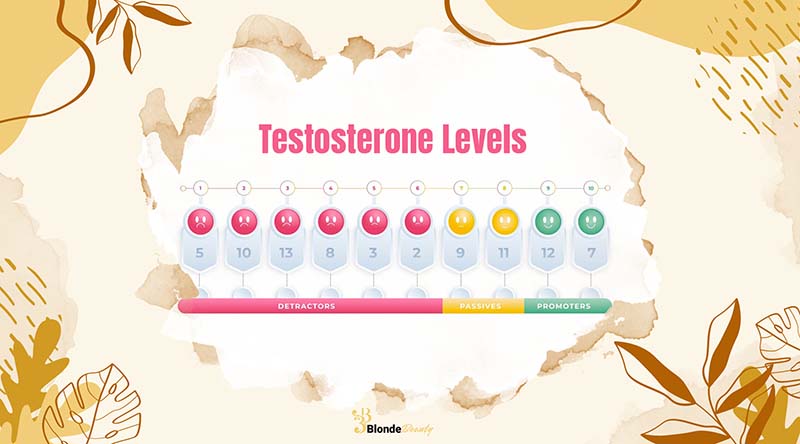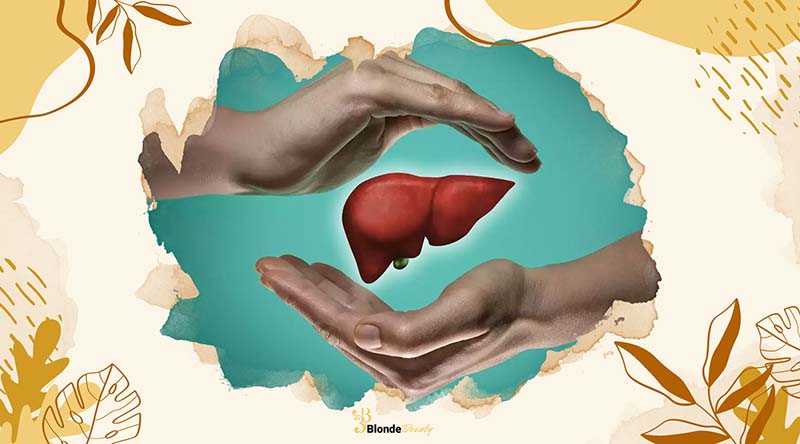If you’re struggling with fertility problems or having trouble with erectile dysfunction, Shilajit Dosage for Erectile Dysfunction might be the solution you’re searching for.
Shilajit, a powerful natural mineral pitch, has been linked to improving these conditions. In this article, we’ll explore the benefits, limitations, and the specific dosage of shilajit that could help.
This will equip you with the knowledge to use this ancient remedy to potentially enhance your fertility and combat erectile dysfunction effectively.
You should also read the following articles:
- Disadvantages of Releasing Sperm Daily: Key Insights.
- Beetroot Powder Benefits for Men: Truth or Myth?.
- Can Belly Fat Cause Erectile Dysfunction? How to Reverse It?.
How Does Shilajit Help in Erectile Dysfunction (ED)?
Shilajit, a revered component in Ayurvedic medicine, has been linked to a range of health benefits, including significant improvements in conditions related to erectile dysfunction (ED). In a notable study, 60 men experiencing infertility were administered Shilajit twice a day over a span of 90 days.
Remarkably, by the end of the study, nearly half of the participants reported substantial improvements in sperm quality and motility—key indicators of male reproductive health.
Originating from the rich mineral deposits of the Himalayas, Shilajit is celebrated for its potential to enhance spermatogenesis, boost testosterone levels, and improve sperm count and mobility. Its efficacy extends beyond sexual health, contributing to an increase in overall energy levels by enhancing the body’s lipid profile.
Additionally, Shilajit is acknowledged for its immune-boosting properties and its ability to alleviate stress.

Other Benefits of Shilajit for Male Health
Apart from its potential to address erectile dysfunction, Shilajit holds promise in treating various chronic conditions and promoting male health in multiple ways.
Enhances Testosterone Levels
Shilajit is renowned for its ability to naturally elevate testosterone levels, a pivotal male hormone crucial for muscle mass, fat distribution, bone density, and libido.
Research indicates that supplementing with Shilajit can heighten testosterone levels in healthy males, thereby improving overall physical and mental well-being.

Increase Concentration
Some studies suggest that Shilajit may mitigate the risk of dementia and enhance cognitive processing and focus.
This could be attributed to Shilajit’s richness in fulvic acid, known to enhance memory. Ongoing research explores its potential in slowing the progression of dementia, particularly in individuals with Alzheimer’s disease.
Anti-aging Support
Shilajit exhibits potent anti-inflammatory and antioxidant properties, according to research. In Ayurvedic tradition, Shilajit is believed to promote longevity and possess anti-aging attributes, which can contribute to overall health and potentially reduce the risk of certain conditions.
Studies propose that Shilajit may attenuate oxidative stress, stimulate cell turnover, and potentially stimulate collagen production.
Liver Health and Cancer Support
Shilajit’s antioxidant and anti-inflammatory properties render it beneficial for liver health and potentially supportive in cancer treatment. Some research hints at its antiviral effects and its capacity to bolster immune function.
Moreover, ongoing investigations suggest that regular consumption of Shilajit may aid in combating liver cancer by preventing cell damage that could precipitate cancer.

Prevents Frequent Fatigue
Shilajit may offer relief for chronic fatigue syndrome (CFS) by enhancing cellular energy production, particularly through increased ATP generation and improved mitochondrial function.
This heightened cellular vitality may mitigate the debilitating effects of CFS symptoms on daily life.

Enhance Cardiovascular Health
Thanks to its antioxidant properties and rich mineral content, Shilajit may contribute to cardiovascular health by regulating blood pressure and cholesterol levels.
Research indicates that regular supplementation with Shilajit may help maintain stable blood pressure by reducing stress and promoting vasodilation, potentially lowering the risk of heart disease.

Solve Iron Deficiency Anemia
In addition to fulvic acid, Shilajit contains various minerals, including iron, gold, silver, and copper. This mineral composition suggests potential benefits in treating iron deficiency anemia. While human studies are limited, animal research suggests that Shilajit could be safe and effective in addressing anemia symptoms.
Note: Always consult with a healthcare professional before incorporating Shilajit or any supplement into your routine, especially if you have underlying health conditions or are taking medications.
How Much Shilajit Should Be Taken for Effective Infertility Treatment?
The appropriate dosage of shilajit for effective infertility treatment can vary based on individual health factors and age. It’s crucial to consult with your doctor before starting shilajit supplementation to receive personalized guidance.
Since shilajit is not regulated by the Food and Drug Administration (FDA), it’s essential to inform your healthcare provider if you’re considering using it. Shilajit is available in capsule, liquid, or powder forms, and the recommended dosage may differ depending on the brand and formulation.
Typically, a daily intake of 300-500mg is advised for shilajit supplementation. Shilajit powder should be diluted and consumed with milk twice daily. However, always adhere to the manufacturer’s instructions provided on the packaging for precise dosing.
It’s important to exercise caution and avoid excessive intake of shilajit. Raw and unprocessed forms of shilajit should be avoided due to potential contamination with high levels of free radicals and fungal organisms.
While shilajit is generally considered safe for long-term use as a supplement, it’s worth noting that most safety studies have only examined its effects over a period of up to 90 days. Further research may be needed to ascertain its safety for prolonged use beyond this timeframe.
Notes Before Using Shilajit
Before using Shilajit, it’s important to be aware of potential side effects and take necessary precautions:
- Allergic Reactions: Excessive intake of Shilajit may trigger allergic reactions, especially in individuals with conditions like sickle cell anemia or thalassemia. It’s crucial to monitor your body’s response and consult a healthcare professional if you experience any adverse reactions.
- Increased Heart Rate: High doses of Shilajit can elevate heart rate, potentially leading to cardiovascular issues such as a heart attack. It’s advisable to adhere to recommended dosage guidelines and avoid overconsumption.
- Contamination Risks: Many Shilajit products available in the market may contain toxins such as heavy metals or free radicals. Prolonged consumption of contaminated Shilajit can pose serious health risks, including organ damage and long-term health complications. Opting for purified Shilajit from reputable sources and requesting a Certificate of Analysis can help ensure product quality and safety.
- Quality Assurance: Proper purification methods and sourcing from trusted suppliers are crucial for obtaining safe and potent Shilajit. Always verify the authenticity and quality of Shilajit products before purchase to minimize the risk of contamination and ensure optimal effectiveness.
By being mindful of these factors and following recommended guidelines, you can maximize the benefits of Shilajit while minimizing potential risks to your health.
Side Effects of Taking Too Much Shilajit
Taking too much shilajit can potentially lead to various side effects and concerns:
- Heavy Metal Contamination: Shilajit may be contaminated with heavy metals like lead, arsenic, and mercury. Continuous exposure to these toxins can accumulate in the body and result in severe health issues over time.
- Allergic Reactions: Some individuals may experience allergic reactions to shilajit, manifesting as skin rashes, hives, or itching.
- Digestive Problems: Excessive intake of shilajit may cause digestive issues such as nausea, vomiting, and diarrhea, particularly when consumed in large quantities.
- Interactions with Medications: Shilajit could interact with certain medications, including blood thinners and drugs for diabetes management. It’s crucial to consult with a healthcare provider before using shilajit if you are on any medication regimen.
- Pregnancy and Breastfeeding: The safety of shilajit during pregnancy and breastfeeding hasn’t been extensively studied. Therefore, it’s not recommended to use shilajit during these periods due to potential risks to maternal and fetal health.
How Long Does Shilajit Take to Increase Testosterone?
To experience an increase in testosterone levels with Shilajit, it’s recommended to incorporate it into your daily routine for approximately 3 months.
Within the first 2-3 weeks of consistent consumption, you may begin to notice significant improvements such as heightened testosterone levels, increased energy, enhanced cognitive abilities, and reduced stress levels.
Continued usage over the course of three months can further amplify these benefits and promote overall well-being.
Conclusion
In conclusion, Shilajit offers a multitude of health benefits and is generally regarded as a safe supplement when consumed appropriately for various conditions, including erectile dysfunction.
Therefore, it’s advisable to consult with a healthcare professional regarding the optimal Shilajit dosage for erectile dysfunction. Doctors assess the dosage of any medication or herbal remedy based on the individual’s medical condition and specific physical needs.
By seeking guidance from a healthcare provider on the Shilajit dosage for erectile dysfunction, you can ensure safe and effective usage of Shilajit to address your health concerns.
For more insightful articles on health and wellness, be sure to explore additional blogs from Blonde Beauty.

Laureate Professor Clare Collins
Professor Clare Collins is a leading expert in nutrition and dietetics at the School of Health Sciences, part of the College of Health, Medicine and Wellbeing. Her work is changing the way we think about food and health. She grew up as one of nine children and was the first in her family to finish high school and go to college. This background gave her a strong work ethic and a deep appreciation for seizing opportunities.
As the Director of the Hunter Medical Research Institute’s Food and Nutrition Program and a recipient of three NHMRC Research Fellowships, Professor Collins is making a big difference in public health. She focuses on helping people who are often overlooked, using new technologies like apps and online programs to improve their nutrition and reduce the risk of chronic diseases.
Professor Collins is well-respected and has been recognized as a Fellow in four major health and science organizations. She leads a diverse team of experts, including dietitians, computer scientists, and engineers, working together on global health projects.
Her achievements are impressive. She has received over $29 million in research funding, published more than 450 papers, and helped 35 PhD and Master’s students complete their degrees. She’s also active in sharing her knowledge with the public. She has developed tools like the Australian Eating Survey and the Healthy Eating Quiz, and she often appears in the media to talk about nutrition.
PUBLISHED ARTICLES
- Collins, C. (2019). “The Effect of a Pilot Dietary Intervention on Pain Outcomes in Patients Attending a Tertiary Pain Service.”
- Collins, C. (2022). “Variation in cardiovascular disease risk factors among older adults.”
- Collins, C. (2022). “Evaluation of an online intervention for improving stroke survivors’ health-related quality of life: A randomised controlled trial.”
These articles show Professor Collins’s commitment to understanding how better nutrition can improve health. Her work is important for researchers, doctors, and anyone interested in healthy living.
